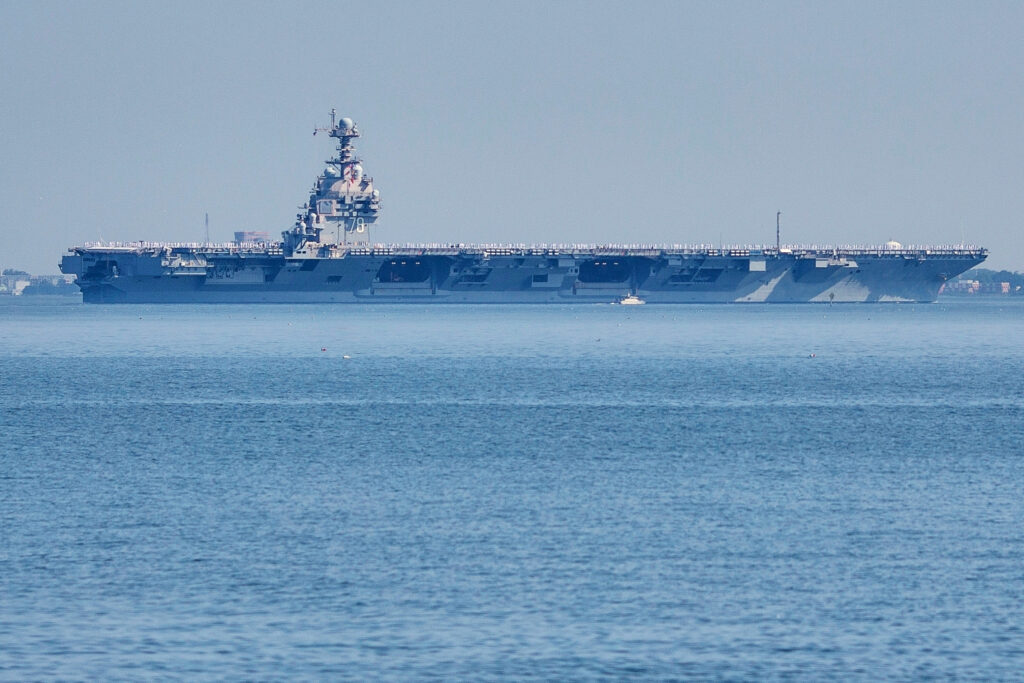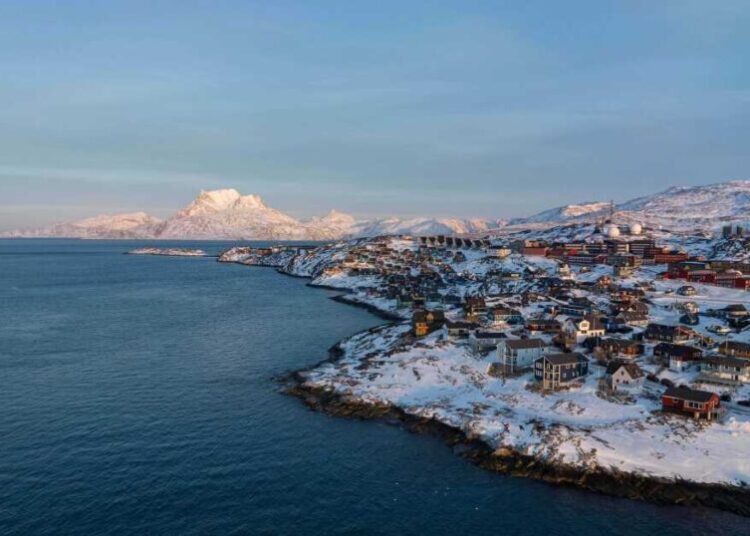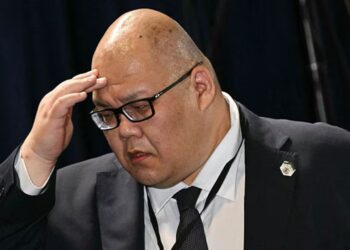President Donald Trump was vague when pressed by reporters. Aboard Air Force One, Trump said he had “sort of made up my mind” after a series of meetings last week with top advisers, who had briefed the president on potential plans of action against the regime of President Nicolás Maduro in Venezuela. Army Secretary Dan Driscoll said the army “would be ready to act on whatever the president and the Sec. War needed,” on Sunday on “Face the Nation.” The White House’s campaign of military pressure seems to be intensifying, yet there’s little clarity on its end goal. Does it seek regime change? Will it consider even mounting a full-blown invasion?
Trump officials say U.S. operations are targeting “narcoterrorists” and have destroyed numerous vessels off Venezuela’s coast carrying alleged drug traffickers. A recent poll found that only a minority of Americans support Trump’s killing of these supposed criminals without a judicial or court order. Undeterred, Trump has floated the possibility of expanding the mission and hitting targets on Venezuelan soil. Congressional attempts to restrain the White House’s ability to launch these strikes failed in the Senate last week.
The United States has amassed its biggest military presence in the Caribbean in decades, a surge of assets that now includes the USS Gerald R. Ford, the world’s largest aircraft carrier. Its arrival takes the number of U.S. troops in the region to about 15,000, a deployment that suggests far more ambition than undermining criminal networks or launching isolated strikes on small boats.
Maduro, who is deeply unpopular and widely considered to have stolen his country’s presidential election in 2024, has sounded the alarm, mobilizing some 200,000 Venezuelan military personnel in response to the U.S. threat. He has cast his country as the next potential victim in Washington’s history of imperialist meddling. “No more forever wars. No more unjust wars,” Maduro said Thursday, recounting the missteps of the U.S. war on terror. “No more Libya. No more Afghanistan.”
That’s a specter Trump explicitly sought to dispel this year. During a speech in May in Saudi Arabia, he rejected the agendas of a previous generation of Republican policymakers. “The so-called ‘nation builders’ wrecked far more nations than they built — and the interventionalists were intervening in complex societies that they did not even understand themselves,” he said.
Maybe that thinking disappears closer to home. Last week, Defense Secretary Pete Hegseth insisted that “the Western Hemisphere is America’s neighborhood,” a statement that echoes Trump’s expansionist claims over territories as disparate as Greenland and the Panama Canal and dovetails with the administration’s apparent shift to prioritize its security posture closer to home.
“Beyond the ongoing attacks, the administration has moved toward a more permanent U.S. military presence in the region with plans for an air base in Ecuador, robust temporary troop rotations in Panama, newly active use of an airport in El Salvador with which U.S. Southern Command has a long-standing cooperative agreement, and the reopening of a mothballed naval base in Puerto Rico,” my colleague Karen DeYoung detailed.
The moves are drawing the concern of other leaders in the region. “We are a zone of peace. We don’t need war here,” said Brazilian President Luiz Inácio Lula da Silva, who is in the midst of a complicated negotiation with the Trump administration over the latter’s bullying use of tariffs on Brazilian exports. “The problem in Venezuela is a political one, and it must be resolved through politics.”
Colombian President Gustavo Petro, a leftist more vocally at odds with the White House, suspended his government’s intelligence sharing with the United States over the bombings of the boats, describing Trump as a “barbarian.”
There’s a suggestion that Trump is calling Maduro’s bluff, and may see the pressure campaign as a tactic to force an implosion in Caracas. “The United States is very plugged into what’s going on in Venezuela, the chatter among Maduro’s people and the highest levels of his regime,” a Trump administration official told my colleagues. “Maduro is very scared, and he should be scared. The president has options on the table that are very bad for Maduro and his illegitimate regime. … We view this regime as illegitimate, and it’s not serving the Western Hemisphere well.”
Targeted U.S. strikes on Venezuelan territory, framed as actions taking out infrastructure related to narco-criminal networks, may create fissures within Maduro’s regime and the Venezuelan military, argued Benigno Alarcón Deza, a Caracas-based political analyst.
“This disruption could well trigger realignments within the regime as elite factions scramble to protect their own personal security, wealth, and other privileges,” he wrote in Americas Quarterly. “When the loyalty of enough key figures begins to waver, Maduro may find that the best way to preserve his own life and freedom is to seek a negotiated exit featuring multilateral verification and a gradual process of transitional justice.”
That would be a dream scenario for some top officials in the Trump administration who see Maduro’s exit as the first domino falling in a sequence that would also collapse autocratic regimes in Cuba and Nicaragua. Some analysts cite the 1989 U.S. invasion of Panama, where it ousted dictator Manuel Antonio Noriega amid allegations that he had allowed his nation to be a home base for drug cartels, as a useful precedent.
Other experts are less sure. “Venezuela is more than 12 times as large and has roughly ten times as many people as Panama did in 1989,” wrote Alexander Downes and Lindsey O’Rourke in Foreign Affairs. “Unlike Panama, Venezuela is not a small state centered on a capital city but a vast, mountainous country with multiple urban centers, rugged jungle terrain, and porous borders that insurgents and irregular forces could exploit. The U.S. military has not fared well against insurgencies under similar conditions in Vietnam and Afghanistan.”
Trump’s political movement is haunted by the failures of U.S. wars in Iraq and Afghanistan, and polls show widespread public skepticism over costly military entanglements abroad. For that reason, among many others, a U.S. invasion is unlikely. But there’s no guarantee either that the current gambit will compel Maduro to quietly step down.
A darker scenario of deepening dictatorship and more chaos for ordinary Venezuelans could be just as likely: “The alternative is a worse autocratization, with unprecedented levels of poverty that will postpone the collapse [of the regime] at the cost of greater repression, more migration, institutional erosion, and humanitarian costs,” Alarcón wrote.
Sign up to receive WorldView, a free, thrice-a-week email newsletter from the international desk of The Washington Post.
The post Trump ups the ante in Venezuela standoff
appeared first on Washington Post.




